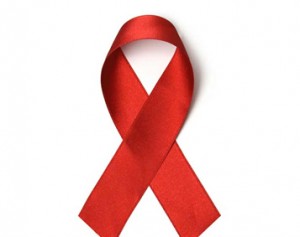More adolescents in Ghana continue to die of HIV – El-Adas
 HIV remains the leading cause of death among adolescents from 10 to 19 years in Sub-Sahara Africa, Dr Angela El-Adas, Director General of the Ghana Aids Commission, has said.
HIV remains the leading cause of death among adolescents from 10 to 19 years in Sub-Sahara Africa, Dr Angela El-Adas, Director General of the Ghana Aids Commission, has said.
HIV is also the second leading cause of death across the globe.
Speaking at the launching of the 15th anniversary of Hope For Future Generations (HFFG), a Ghanaian based NGO in Accra, Dr El-Adas, however, said new infections and AIDS related death are declining in all age groups except in adolescents and the worst affected are girls.
“That is why African Union member states have launched a united continental “ALL IN” adolescent HIV Campaign… to make the necessary impact, we must, all of us join in the struggle to make inroads”, Dr El-Adas said.
The theme for the Anniversary is: “15 years of Championing Equal Opportunities for Women and Children through Sustainable Partnerships.”
The work of the HFFG focuses on issues of women, children and the youth as the organisation works to provide services and hope for the vulnerable in the country.
With a tagline of giving equal opportunity to women and children, HFFG concentrates on the provision of social services including education, health, employment, and that has touched the lives of women and children in over 600 communities in all the ten regions of Ghana over the past fifteen years.
Dr El-Adas commended HFFG for its immense contribution to the national HIV agenda especially, contributing greatly towards the reduction of new HIV infections through community-based integrated sexual and reproductive health interventions among women and young people.
“As a high performing and results oriented CSO, HFFG has promoted HIV and STI screening, condom use and stigma reduction; and facilitated effective referral systems linking in and out of school youth as well as the general population to prevention, treatment, care and support services in 20 districts in the Central Region.
“More than 80, 000 women and young people, persons with disability have been reached through these interventions,” she said.
She however called on CSOs and other development partners to help leverage the interlinks and synergies towards ending AIDS by 2030.
“We can only reach our HIV-related targets if we continue to pursue an integrated and inter-sectoral approach leveraging SDG1 Poverty reduction, through SDG 17-strategic, sustained partnerships”.
She said Ghana would continue to be committed to achieving the 90-90-90 HIV Fast Track Targets, which states that by 2020, 90 per cent of all Persons Living with HIV (PLHIV) know their status, 90 per cent of PLHIV are on effective antiretroviral treatment and 90 per cent have the virus suppressed “so that we can remain productive and support Ghana’s development agenda”.
Mrs Cecilia Senoo, Executive Director and Founder of HFFG, said over the years, her organisation contributed to the realisation of Ghana’s development, including all the gains made with the just ended MDGs.
She mentioned various programme interventions in the areas of maternal, neonatal and child health, youth empowerment, HIV prevention, care and support, economic empowerment, sanitation and hygiene, food and nutrition, Malaria and TB as well as Ebola and Cholera prevention, as some of the activities that the HFFG had carried out which had yielded results and earned the organisation many noble awards over the years.
“As an NGO, all these successes have been made possible through various technical and financial support from our Development Partners including: The Ghana AIDS Commission, Ghana Health Service, The Dutch Embassy, the French Embassy, UKaid, SIMAVI of the Netherlands, WHO, ADRA, USAID, Plan Ghana, NTP, Ipas Ghana, UNICEF and UNFPA, among others.
As part of the anniversary celebrations, HFFG has lined up various activities including the unveiling of its flagship project: “HopePal – a project targeting persons with disability.
Mrs Senoo called on government and policy makers at all levels to continue making the issues of women and children a priority on their agenda while investing in the education, health, employable and leadership skills of young people.
She said Government should continue to partner civil society organisations like HFFG for the holistic development of the individual, society and the nation at large.
Source: GNA
